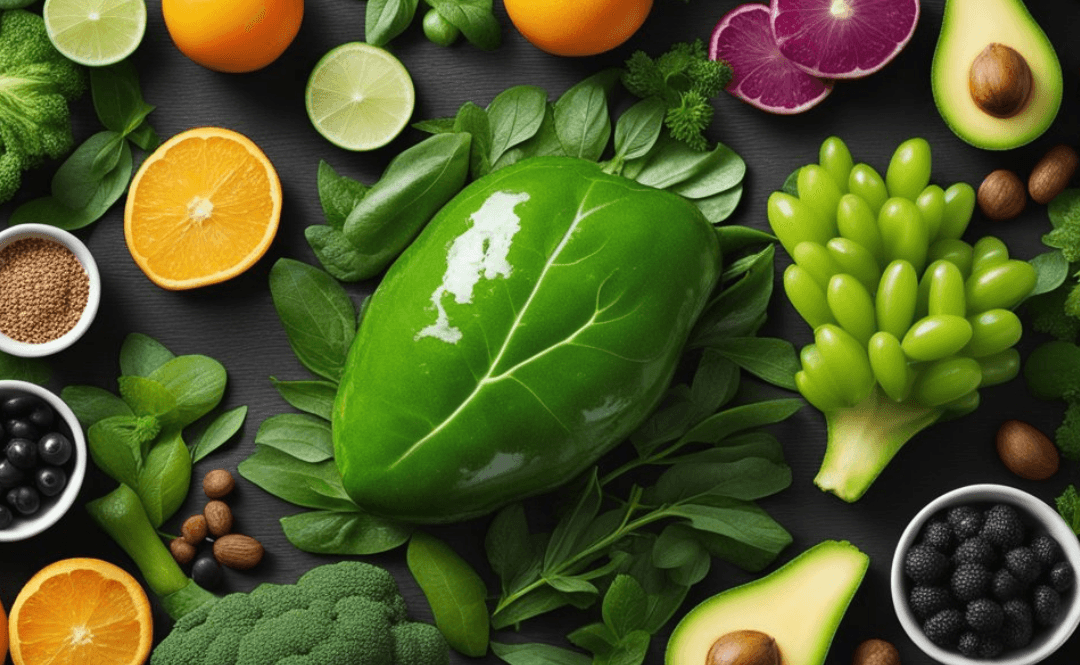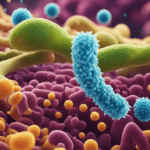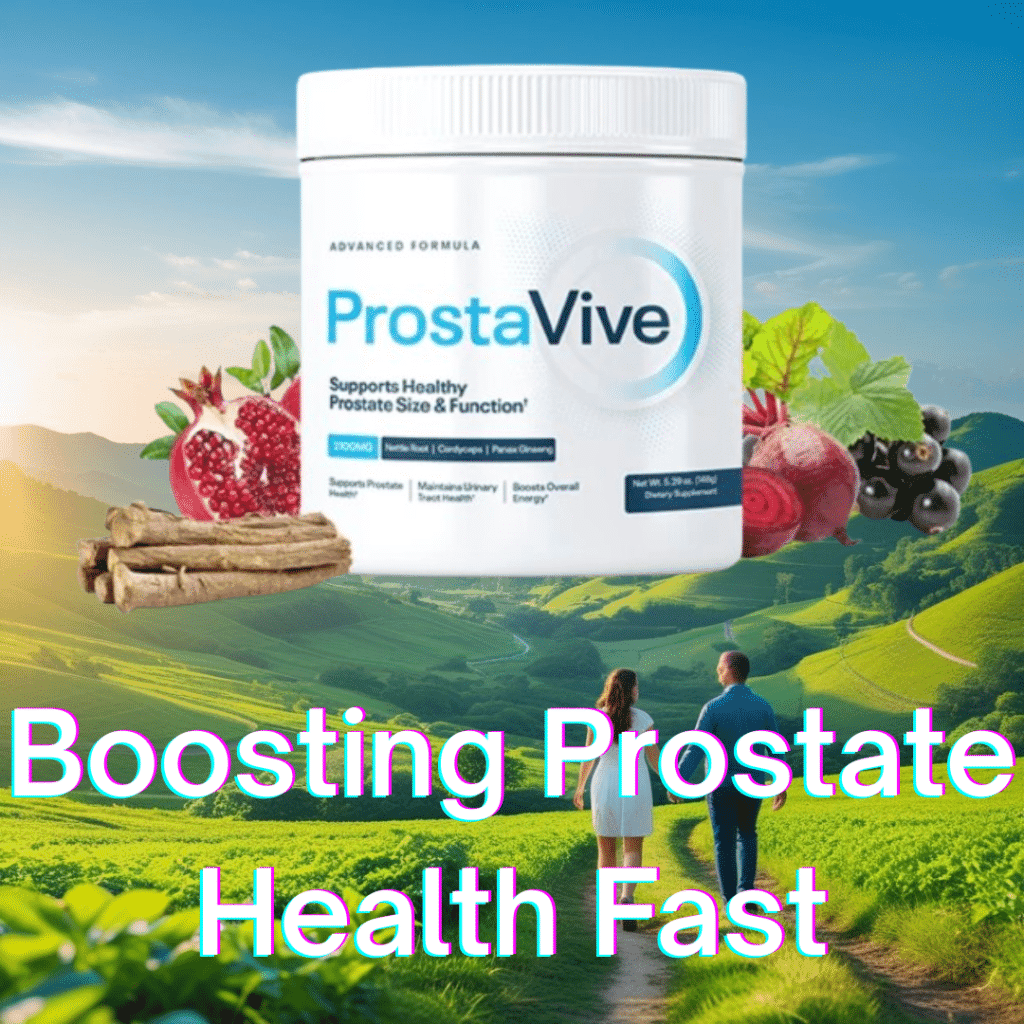Liver detoxification is a popular health trend that involves removing toxins from the liver to improve overall health. The liver is a vital organ that performs many essential functions in the body, including filtering toxins and waste products from the blood. However, factors such as poor diet, alcohol consumption, and exposure to environmental toxins can overload the liver and impair its function. This can lead to various health problems, including liver disease, fatigue, and digestive issues.

Understanding Liver Detoxification: Liver detoxification is the process of removing toxins and waste products from the liver to improve its function and overall health. The liver has two primary detoxification pathways, known as phase I and phase II. During phase I, enzymes break down toxins into smaller molecules, which are then processed during phase II and eliminated from the body. However, if these pathways become overwhelmed, toxins can accumulate in the liver and cause damage.
Factors Impacting Liver Health: Several factors can impact liver health, including poor diet, alcohol consumption, exposure to environmental toxins, and certain medications. A diet high in processed foods, unhealthy fats, and sugar can increase inflammation and oxidative stress in the liver, impairing its function. Alcohol consumption can also damage the liver by causing inflammation and scarring. Exposure to environmental toxins, such as pesticides and chemicals, can also impair liver function. Certain medications, such as acetaminophen, can also cause liver damage if taken in high doses.
Key Takeaways
- Liver detoxification involves removing toxins from the liver to improve its function and overall health.
- Factors such as poor diet, alcohol consumption, exposure to environmental toxins, and certain medications can impair liver function.
- Supporting liver health through a healthy diet, reducing alcohol consumption, and avoiding exposure to environmental toxins can help improve liver function and reduce the need for liver detoxification methods.
Overview
Understanding Liver Detoxification
Liver detoxification is a vital process that helps our body eliminate toxins and maintain optimal liver function. The liver is the primary organ responsible for detoxification in the body. It processes and filters everything we consume, including food, water, medications, and supplements.
The Role of the Liver in Detoxification
The liver has two primary phases of detoxification. In phase one, the liver enzymes break down toxins into smaller molecules. In phase two, these smaller molecules are further processed and eliminated from the body. The liver also produces bile, which helps eliminate toxins through the digestive system.
The liver’s role in detoxification is critical to maintaining overall health. A healthy liver ensures that toxins are eliminated from the body efficiently, preventing them from building up and causing damage.
How Toxins Affect Liver Health
Toxins can accumulate in the liver when the liver is overloaded, leading to liver damage and impaired detoxification. Common toxins that can affect liver health include alcohol, processed foods, environmental pollutants, and medications.
Liver detoxification can be supported through healthy lifestyle habits, such as eating a diet rich in whole foods, drinking plenty of water, exercising regularly, and avoiding harmful substances. Additionally, certain supplements and herbs can support liver function and detoxification.
In conclusion, understanding liver detoxification is crucial to maintaining optimal liver health and overall well-being. By supporting liver function through healthy lifestyle habits and natural remedies, we can help our body eliminate toxins efficiently and maintain a healthy liver.
Factors Impacting Liver Health
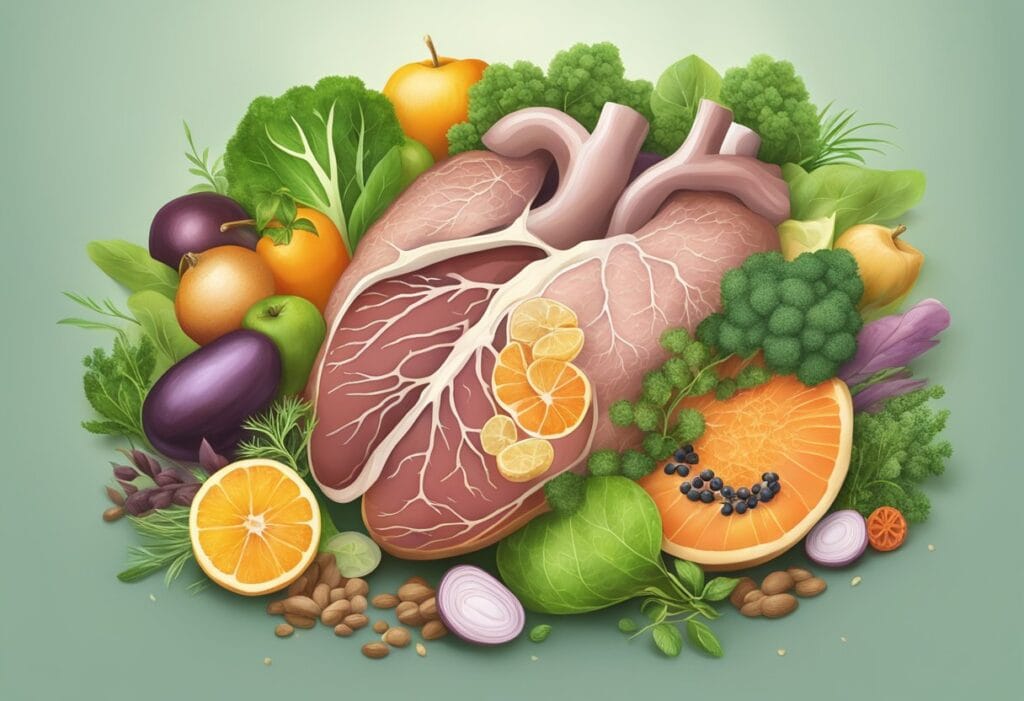
The liver is one of the most important organs in our body and plays a vital role in maintaining overall health. It is responsible for filtering toxins, producing bile, and metabolizing nutrients. However, several factors can impact liver health and lead to liver damage. In this section, we will discuss some of the most significant factors that can impact liver health.
Diet and Nutrition
Diet and nutrition play a crucial role in maintaining liver health. A diet high in processed foods, unhealthy fats, refined sugar, and additives can put a strain on the liver and lead to liver damage. On the other hand, a diet rich in fruits, vegetables, whole grains, and lean protein can help support liver health and function.
Certain nutrients are essential for liver health, such as vitamin E, vitamin C, and antioxidants. These nutrients can help protect the liver from damage caused by toxins and free radicals. Additionally, a diet rich in fiber can help promote healthy digestion and reduce the risk of liver damage.
Lifestyle and Environmental Toxins
Lifestyle and environmental toxins can also impact liver health. Exposure to toxins such as pesticides, chemicals, and pollutants can put a strain on the liver and lead to liver damage. Additionally, smoking, excessive alcohol consumption, and obesity can also increase the risk of liver damage.
To maintain liver health, it is essential to reduce exposure to toxins and adopt a healthy lifestyle. Quitting smoking, reducing alcohol intake, and maintaining a healthy weight can all help support liver health and reduce the risk of liver damage.
Medications and Alcohol Intake
Certain medications and alcohol intake can also impact liver health. Medications such as acetaminophen, antibiotics, and statins can all cause liver damage if taken in excess. Additionally, excessive alcohol intake can also cause liver damage and increase the risk of liver disease.
In conclusion, several factors can impact liver health, including diet, lifestyle, environmental toxins, medications, and alcohol intake. By adopting a healthy lifestyle and reducing exposure to toxins, we can help support liver health and reduce the risk of liver damage.
Supporting Liver Health

When it comes to supporting liver health, there are several key factors to consider. In this section, we will discuss some of the most important nutrients, foods, and lifestyle choices that can help keep your liver functioning optimally.
Nutrients and Supplements for Liver Support
Certain nutrients and supplements can be particularly beneficial for liver health. For example, milk thistle is a popular herb that has been used for centuries to support liver function. It contains a compound called silymarin, which has been shown to have antioxidant and anti-inflammatory effects [1]. Other supplements that may be helpful for liver health include N-acetylcysteine (NAC), alpha-lipoic acid, and selenium [2].
Liver-Friendly Foods and Diet
Eating a healthy diet is essential for liver health. Some of the best foods for liver health include leafy greens, such as spinach and kale, as well as cruciferous vegetables like broccoli and Brussels sprouts. These vegetables contain compounds that can help support liver function and promote detoxification [3]. Other liver-friendly foods include garlic, turmeric, and berries [4].
In addition to eating a healthy diet, it is also important to avoid foods that can be harmful to the liver. These include processed foods, alcohol, and foods high in sugar and unhealthy fats [5].
Exercise and Healthy Lifestyle Choices
Regular exercise and healthy lifestyle choices can also be beneficial for liver health. Exercise can help improve insulin sensitivity and reduce inflammation, both of which are important for liver health [6]. Additionally, maintaining a healthy weight and avoiding smoking can also help support liver function [7].
[1] https://www.ncbi.nlm.nih.gov/pmc/articles/PMC4116427/ [2] https://www.ncbi.nlm.nih.gov/pmc/articles/PMC6164276/ [3] https://www.ncbi.nlm.nih.gov/pmc/articles/PMC4488098/ [4] https://www.ncbi.nlm.nih.gov/pmc/articles/PMC3575935/ [5] https://www.ncbi.nlm.nih.gov/pmc/articles/PMC6340976/ [6] https://www.ncbi.nlm.nih.gov/pmc/articles/PMC5946217/ [7] https://www.ncbi.nlm.nih.gov/pmc/articles/PMC6340976/
Common Liver Detoxification Methods
There are several methods for detoxifying the liver. In this section, we will discuss some of the most common methods.
Liver Cleanse and Detox Diets
Liver cleanse and detox diets are popular methods for detoxifying the liver. These diets typically involve consuming a specific set of foods or drinks for a set period of time, such as one week or one month. Some examples of foods and drinks that are commonly included in liver cleanse and detox diets include lemon water, green tea extract, and milk thistle.
While these diets may help to improve liver function, it is important to note that there is no scientific evidence to support their effectiveness. Additionally, some liver cleanse and detox diets may be overly restrictive and may not provide the body with the nutrients it needs to function properly.
Herbal and Natural Supplements
Herbal and natural supplements are another common method for detoxifying the liver. Some examples of supplements that are commonly used for liver detoxification include milk thistle, dandelion root, and turmeric.
While some of these supplements may have liver-protective properties, it is important to note that not all supplements are safe or effective. Additionally, some supplements may interact with medications or may be harmful to individuals with certain medical conditions. It is important to talk to a healthcare provider before taking any herbal or natural supplements.
Medical and Alternative Therapies
Medical and alternative therapies may also be used to detoxify the liver. Some examples of medical therapies include medications that are used to treat liver disease, such as hepatitis C. Alternative therapies, such as acupuncture and massage therapy, may also be used to improve liver function.
It is important to note that not all medical and alternative therapies are safe or effective. Additionally, some therapies may be expensive or may not be covered by insurance. Talk to a healthcare provider before starting any new medical or alternative therapy.
In conclusion, there are several methods for detoxifying the liver, including liver cleanse and detox diets, herbal and natural supplements, and medical and alternative therapies. While some of these methods may have liver-protective properties, it is important to talk to a healthcare provider before starting any new method. Additionally, it is important to maintain a healthy lifestyle, including eating a balanced diet, exercising regularly, and avoiding alcohol and tobacco, in order to support liver function.
Risks and Considerations
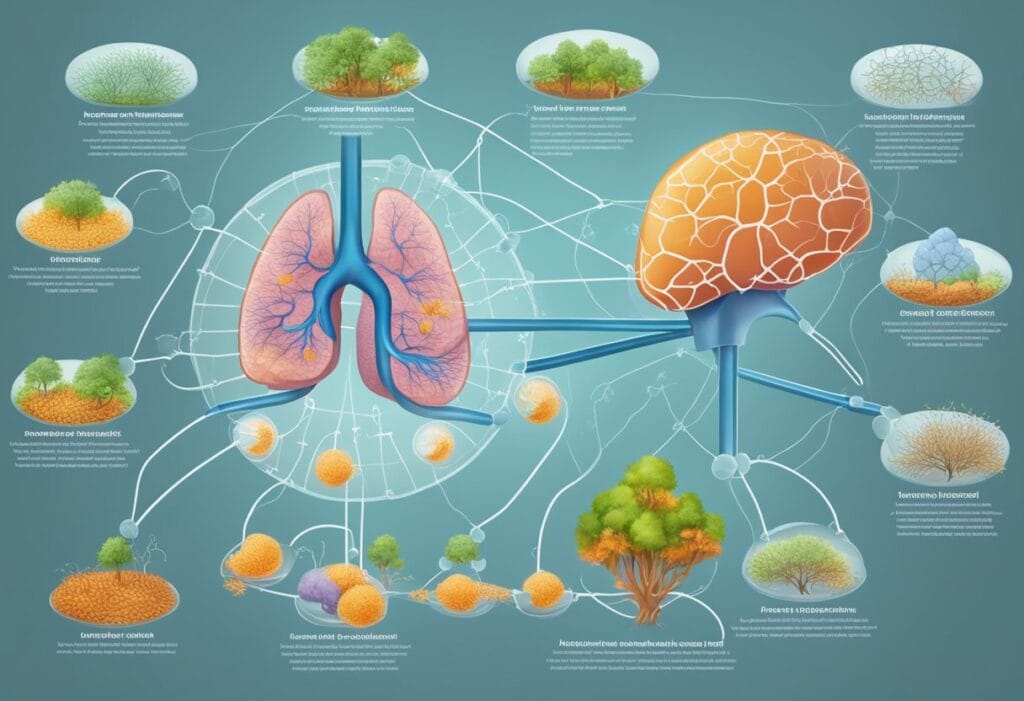
When considering a liver detox, it is important to understand the potential risks involved. While many people believe that liver detoxes are an effective way to remove toxins and improve liver health, there is little scientific evidence to support these claims. Moreover, some liver detox methods can actually be harmful, especially if they involve extreme fasting or the use of herbal supplements that may interact with medications.
Understanding the Potential Risks
One of the main risks associated with liver detoxes is the potential for liver damage. This is especially true if the detox involves extreme fasting or the use of herbal supplements that can be toxic to the liver. In addition, some detox methods may cause dehydration, which can further stress the liver and lead to complications.
Another risk to consider is the potential for medication interactions. Some herbal supplements used in liver detoxes can interact with prescription medications, leading to potentially dangerous side effects. Talk to a doctor or pharmacist before starting any liver detox program to ensure that it is safe and appropriate for you.
When to Consult a Doctor
If you have a history of liver disease or are taking medications that may interact with herbal supplements, it is important to consult a doctor before starting a liver detox program. Additionally, if you experience any unusual symptoms during a detox, such as abdominal pain, nausea, or vomiting, you should stop the detox immediately and seek medical attention.
It is also important to note that the liver is a highly regulated organ and is capable of detoxifying the body on its own. Eating a healthy diet, staying hydrated, and avoiding excessive alcohol consumption are all important ways to support liver health and function. If you are considering a liver detox, make sure to do so under the guidance of a healthcare professional to ensure that it is safe and appropriate for you.

